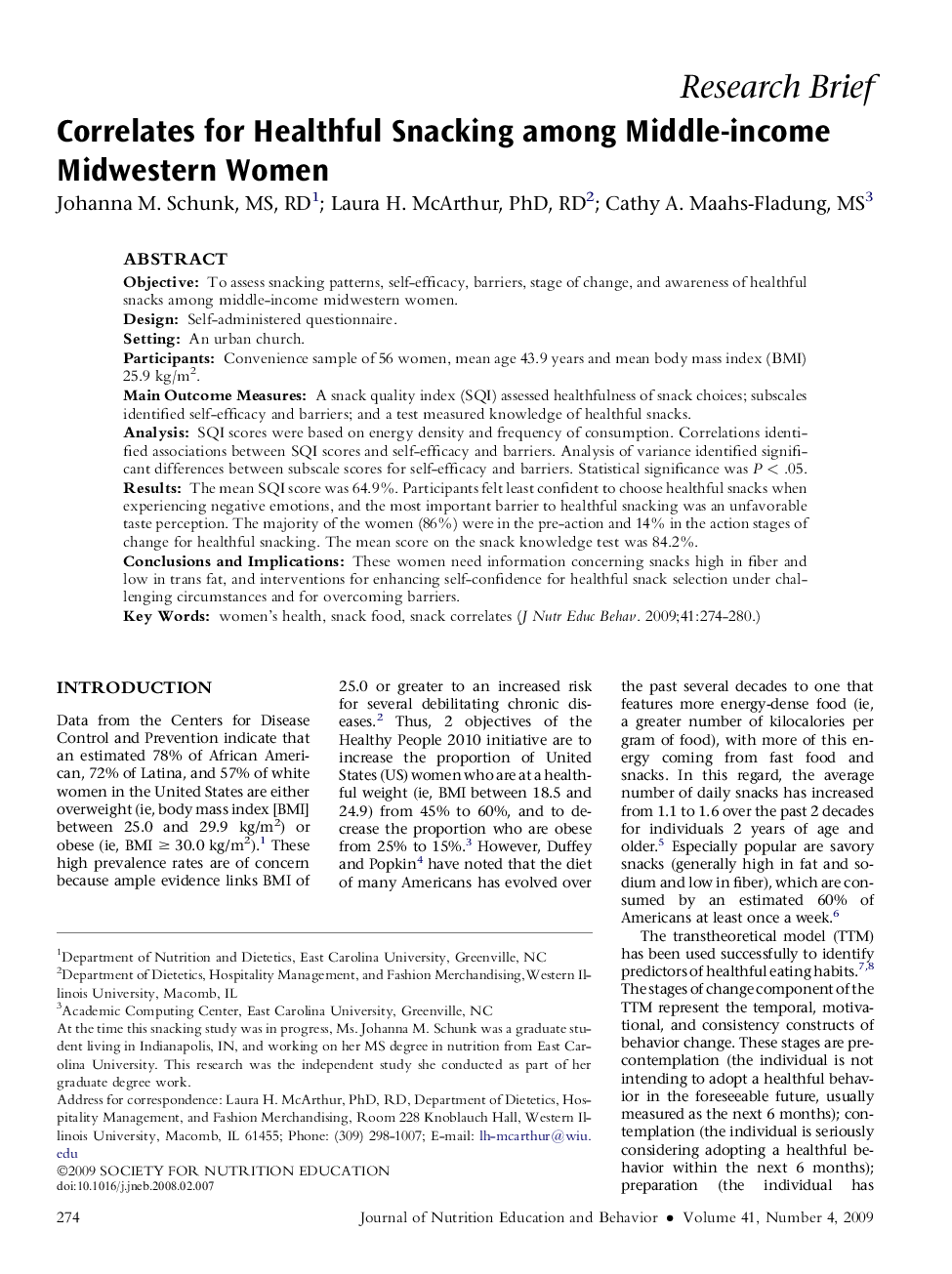| Article ID | Journal | Published Year | Pages | File Type |
|---|---|---|---|---|
| 362469 | Journal of Nutrition Education and Behavior | 2009 | 7 Pages |
ObjectiveTo assess snacking patterns, self-efficacy, barriers, stage of change, and awareness of healthful snacks among middle-income midwestern women.DesignSelf-administered questionnaire.SettingAn urban church.ParticipantsConvenience sample of 56 women, mean age 43.9 years and mean body mass index (BMI) 25.9 kg/m2.Main Outcome MeasuresA snack quality index (SQI) assessed healthfulness of snack choices; subscales identified self-efficacy and barriers; and a test measured knowledge of healthful snacks.AnalysisSQI scores were based on energy density and frequency of consumption. Correlations identified associations between SQI scores and self-efficacy and barriers. Analysis of variance identified significant differences between subscale scores for self-efficacy and barriers. Statistical significance was P < .05.ResultsThe mean SQI score was 64.9%. Participants felt least confident to choose healthful snacks when experiencing negative emotions, and the most important barrier to healthful snacking was an unfavorable taste perception. The majority of the women (86%) were in the pre-action and 14% in the action stages of change for healthful snacking. The mean score on the snack knowledge test was 84.2%.Conclusions and ImplicationsThese women need information concerning snacks high in fiber and low in trans fat, and interventions for enhancing self-confidence for healthful snack selection under challenging circumstances and for overcoming barriers.
